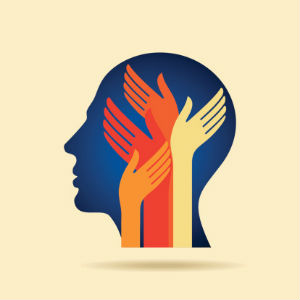It’s usually assumed certain conditions are part and parcel to the aging process, but the fact is many are caused by treatable conditions. Issues like confusion, for example, could be caused by an infection or dehydration, and fatigue could be caused by depression, heart disease or high blood pressure.
While many older adults face the same aging issues regardless of sexual orientation, LGBT older adults face some additional issues when it comes to healthy aging. Here are some tips LGBT older adults can use to ensure they are as healthy as possible.
Find a Physician Who’s Right for You
LGBT older adults run higher risks for diseases like breast cancer, HIV and heart disease. Disclosing your sexual orientation to your physician can help treat and screen for many diseases. But finding a physician you’re comfortable with can be a challenge for anyone, especially if you are LGBT. Many LGBT patients fear being judged or discriminated against by their healthcare providers. To find a physician dedicated to advancing the health of LGBT patients, you can search the physician directory of the Health Professionals Advancing LGBT Equality (previously known as the Gay & Lesbian Medical Association). You can also search for LGBT-friendly hospitals at the Human Rights Campaign website.
Don’t Forget About Mental Health
Some mental changes come with aging, but if you experience or notice the following in someone you care about, get evaluated:
- Failure to recognize loved ones
- Getting lost in a familiar place
- Failure to distinguish between day and night
Older LGBT adults are at greater risk of depression, anxiety and mood disorders due to decades of discrimination. They’re also at greater risk of alcoholism. If you need to speak to a mental health professional, you can find an LGBT-friendly one here. You can also find a psychiatrist through the Association of Gay and Lesbian Psychiatrists.
Find a Spiritual or Community Resource
Older adults who engage with others in meaningful activities have a feeling of purpose and feel happier. You can find many avenues to become involved. Perhaps you like book clubs, hiking or cooking, or if you’re looking for a spiritual resource, you can find resources from several faiths from the Human Rights Campaign.
Senior centers can be an excellent place to meet other older adults and become involved in community activities. In addition to senior centers that cater to all older adults, there are centers that cater to LGBT older adults. You can find a listing of centers for LGBT older adults by visiting CenterLink.
Though maintaining your health as you age—especially if you are LGBT—might seem like a challenge, finding the right physician, getting regular checkups, being aware of your mental health and remaining active in your community are all ways to ensure the aging process goes smoothly.













